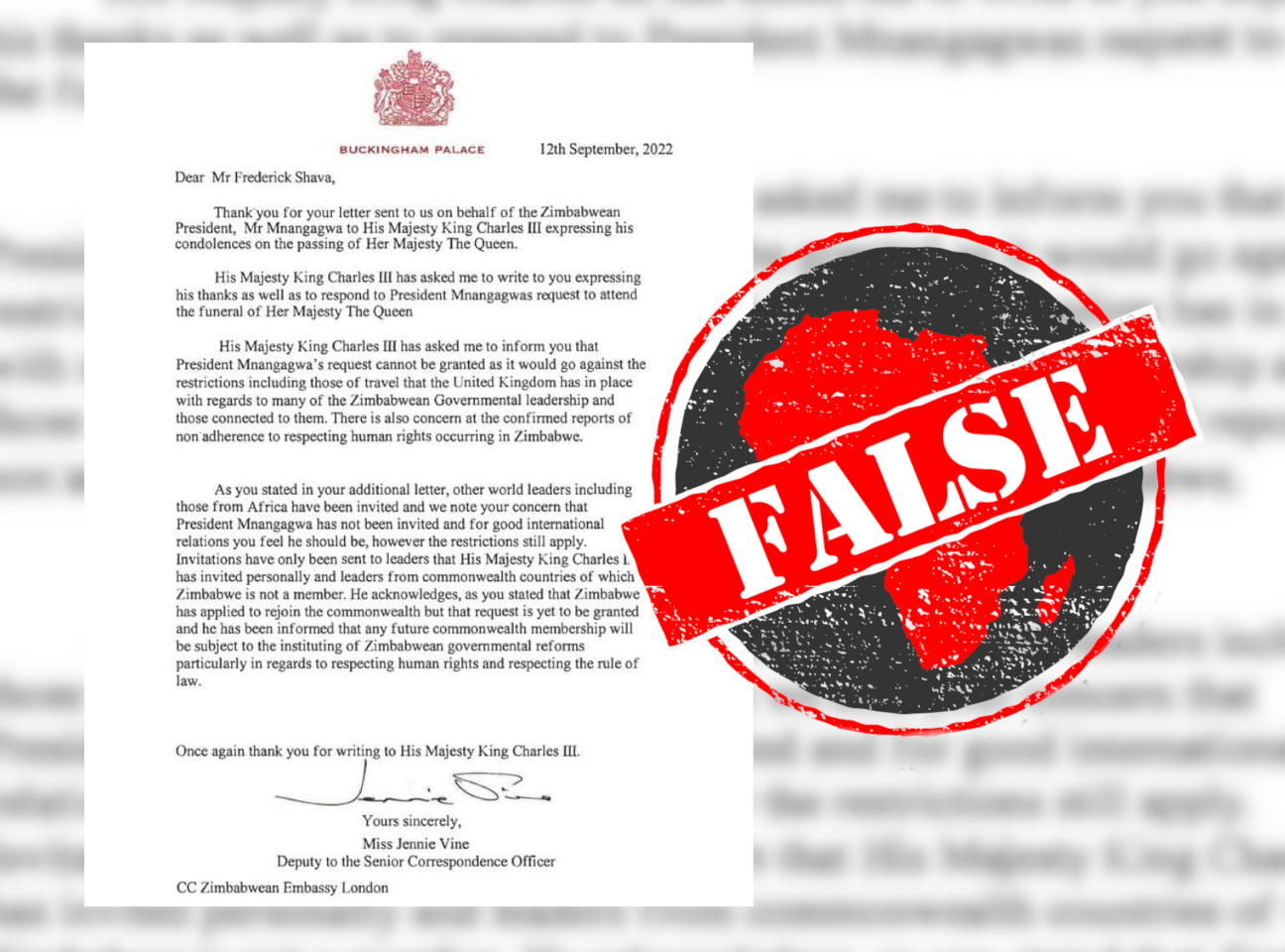IN SHORT: Zimbabwe has in the last two decades had strained relations with the United Kingdom. But contrary to a false letter shared on social media, the southern African country’s president still bagged himself an invite to the funeral of queen Elizabeth II – though he did not attend.
On 8 September 2022, the UK’s longest serving monarch, queen Elizabeth II, died at Balmoral Castle in Scotland, aged 96. Her funeral was held on 19 September.
Leading up to Elizabeth’s funeral a letter circulated on social media claiming that Zimbabwe’s president Emmerson Mnangagwa requested Buckingham Palace to allow him attend the queen’s funeral but was turned down.
Buckingham Palace in the capital London is the British monarchy’s administrative headquarters.
The letter is addressed “Dear Mr Frederick Shava”. Shava is Zimbabwe's minister of foreign affairs and international trade.
According to the letter Mnangagwa’s request to attend the funeral has been rejected because Zimbabwe is under international sanctions and also because of concerns over human rights violations.
The letter says only leaders “invited personally” by Elizabeth’s eldest son, king Charles III, and leaders from the Commonwealth could attend the funeral.
Zimbabwe abandoned the Commonwealth, a network of mostly former colonies of the British empire, in 2003.
The letter has been posted here, here, here , here , here and here.
But are these reports true?

Ignore fake letter
The British embassy in Zimbabwe’s capital Harare posted the letter on its official verified Twitter account, stamping it “FAKE”.
The caption reads: “President Mnangagwa has been invited to attend the funeral of Her Majesty Queen Elizabeth II at Westminster Abbey on Monday. The letter below is fake.”
Despite the invitation, Mnangagwa did not attend the funeral due to “prior commitments”. He sent Shava in his place, according to the Zimbabwean foreign affairs ministry.
Republish our content for free
For publishers: what to do if your post is rated false
A fact-checker has rated your Facebook or Instagram post as “false”, “altered”, “partly false” or “missing context”. This could have serious consequences. What do you do?
Click on our guide for the steps you should follow.
Publishers guideAfrica Check teams up with Facebook
Africa Check is a partner in Meta's third-party fact-checking programme to help stop the spread of false information on social media.
The content we rate as “false” will be downgraded on Facebook and Instagram. This means fewer people will see it.
You can also help identify false information on Facebook. This guide explains how.


Add new comment